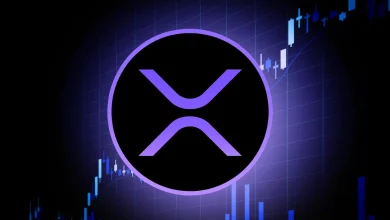
A $40 billion loss from Terra's collapse highlighted the need for clearer regulations, leaving traders facing fallout from widespread fraud.
South Korea and US officials will discuss future crypto policies as both countries prepare new regulations.
New rules may bring stability and institutionalization, but recent declines in trading volume suggest challenges.
South Korea’s cryptocurrency market took a significant hit in 2022, with a $40 billion drop linked to issues within Do Kwon’s Terra-Luna system. This event emphasized the need for clearer rules in the crypto world, leaving South Korean traders facing the consequences of widespread fraud.
Key Meet Ahead: What’s Next for Crypto?
South Korea’s Financial Supervisory Service (FSS) Chief, Lee Bok-hyun, is scheduled for a critical discussion in January with Gary Gensler, Chair of the U.S. Securities and Exchange Commission (SEC). This anticipated meeting, reported by Chosunbiz on December 18, signifies a proactive move to deliberate on cryptocurrency market dynamics and potential supervisory policies in the ever-evolving crypto sector.
Timing is everything!
The meeting gains importance given the upcoming changes in both the U.S. and South Korea. There are talks of the SEC approving Bitcoin exchange-traded products soon. In South Korea, new regulations are expected by July 2024, affecting crypto traders and exchanges. These shifts highlight the need for discussions at this level.
KuCoin data shows that a significant 25% of South Korean adults between 18 and 60 have invested in cryptocurrencies in the past six months. This positions South Korea as a major player in the global crypto market. Experts also predict that the global crypto market could be worth $5 trillion by 2024.
Read More: Global Crypto Regulation Survey: Are Fragmented Laws Threatening Growth?
Legal Challenges & SEC’s Approach
Do Kwon, co-founder of Terraform Labs, faces legal issues across different countries, including possible U.S. extradition. This situation illustrates the challenges faced when international laws intersect with cryptocurrencies.
Under Gary Gensler, the SEC has been careful in its approach to crypto. While many expected more, the SEC has so far only approved crypto futures-related ETFs. The upcoming Lee-Gensler meeting could provide insights into future regulatory decisions.
2024 Brings Good News for South Korea!
With new rules and the ETF discussion in the air, 2024 is seen by many in South Korea as a year where crypto becomes more institutionalized. This is viewed positively, suggesting growth and maturation for the industry. However, recent trends, including reduced trading volumes in 2023, indicate challenges ahead for South Korea’s crypto exchanges.
Despite recent crypto interest, 2023 saw a drop in trading activity. Upbit dominated with a 90% market share by mid-year, leading competitors like Korbit to waive their fees, previously a significant revenue source, to stay competitive.








